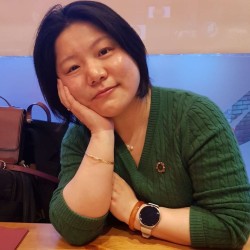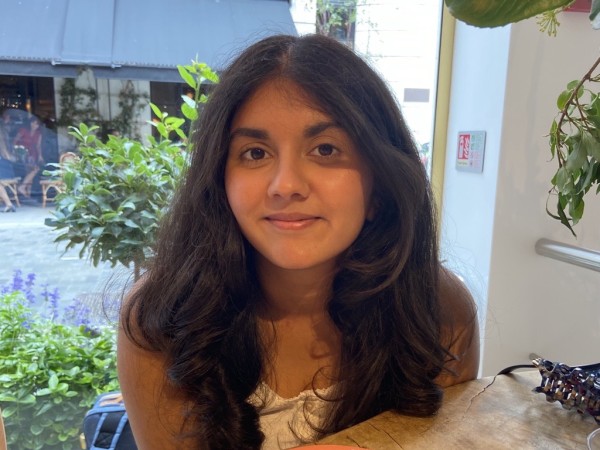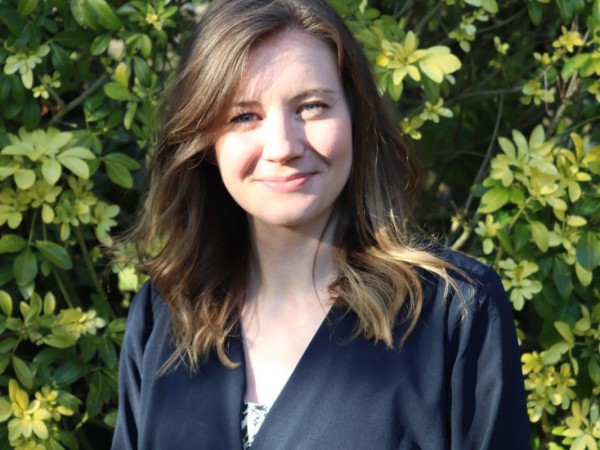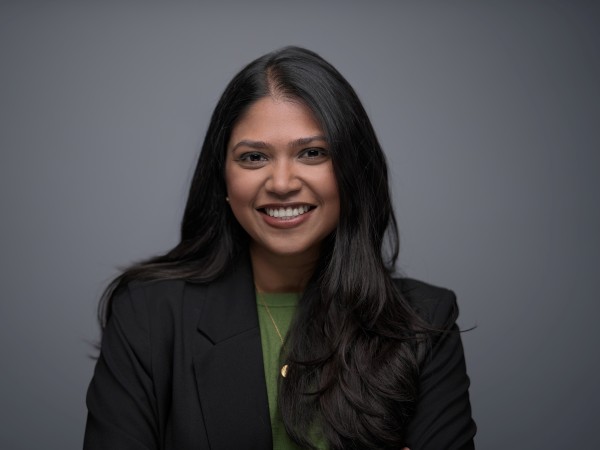
Xiaobo (Agnes) Shen
"Studying at Surrey opened my eyes to various areas of the water and environmental profession. There are so many things that can be discovered and developed in this multidisciplinary field, and the outcomes are so meaningful as they benefit the environment and public health."
Course
Water and Environmental Engineering MScGraduation year
2003What attracted you to choose the University of Surrey and to study your course here?
I was one of two successful candidates from China for the Thames Water–University of Surrey joint Chevening Scholarship and started studying for the Water and Environmental Engineering MSc in 2002.
At that time, Thames Water was the world’s third-largest water company and had business around the world, including in China. The company wanted to train and develop water and environmental engineers so had sponsored various MSc, EngD and PhD programmes with several universities, including Surrey.
I found that the MSc programme was very well established, covering a wide range of topics in environmental health, water quality, sanitation, water resource management, pollution control and treatment process. It provided me and other students with a solid understanding of the core areas of water and environmental engineering, and integrated core engineering science and first principles with practical applications.
What are your strongest memories of your time at Surrey?
There were quite a few taught classes but as a student you manage your own time with a lot of self-learning, reading and group work. The pace of the one-year course was very fast but fulfilling.
I had some really good times at Surrey. The staff were always friendly and supportive. I was also very impressed with the multicultural environment; I met people from all over the world and tried different cuisines in the student kitchen. I played my Chinese bamboo flute and another student recorded part of it and added it to his DJ music, which was a fantastic mixture of Eastern and Western cultures.
What were the best things about your course?
I enhanced my knowledge and understanding in environmental health, water quality, sanitation, water resource management and pollution control, and gained a wide range of skills in academic writing (in English), critical thinking, modelling, presentation, communication and group projects. The study tour to Europe was also one of the highlights, to see more practical applications in the real world.
And I graduated with distinction, which was the best reward for my hard work over the year!
"Process engineers are the architects of treatment assets and provide the equivalent of a medical doctor’s diagnosis of human illness."
What do you do now and what do you find most enjoyable about your work? Have there been any highlights?
I have been working with Thames Water since I graduated from my MSc (both in China and the UK).
My study and career journey provided me with in-depth wastewater process knowledge and experience covering engineering, modelling, operations and digitisation. It also enabled me to gain excellent command of wastewater treatment process principles, standards, regulatory requirements and technology; to identify wastewater treatment process shortfalls and put forward robust, holistic, practical and cost-effective engineering solutions; and to translate and transfer academic and scientific process knowledge to pragmatic engineering and operational solutions.
I am currently working part-time in the Capital Delivery team to provide technical assurance, process consultation and training to the business. I also started a part-time PhD with the School of Sustainability, Civil and Environmental Engineering at Surrey in October 2022. It is amazing to start a new adventure with Surrey after 20 years!
Tell us a bit more about your journey.
I have always been fascinated with wastewater treatment process. As my coach at work used to say: process engineers are the architects of treatment assets and provide the equivalent of a medical doctor’s diagnosis of human illness, by identifying the root causes of poor performance and recommending ‘treatments’ in the form of holistic, robust and cost-effective solutions. This reduces business risks, mitigates pollution, restores compliance and improves efficiency by generating energy and recycling resources from waste. It is a very purposeful and meaningful career for me despite the challenges.
Some highlights over the years have included:
deriving and developing Thames Water’s advanced holistic wastewater process modelling tools
being the delivery lead, then subsequently domain lead and deputy product owner, of ‘Beckton Sewage Treatment Works Digital Twin’, to provide crucial technical guidance as the Thames Water (the client) representative and to deliver the cutting-edge and industrial leading decision-making support tool together with our delivery partners.
I obtained my chartership via CIWEM (Chartered Engineer and Chartered Water and Environmental Manager). I’m currently Chair of the Thames Water CIWEM Committee. Together with the committee members, we have helped a number of colleagues to progress on their career progression and chartership applications. As a member of the CIWEM Accreditation Board, I also help with accreditation reviews and make visits to universities and companies.
How did your time at Surrey help you choose what career to go into?
As my MSc was sponsored by Thames Water, I was offered the opportunity to take the assessments of the Graduate Programme (two-year structured training with rotation in placements). I joined the Thames Water Shanghai Office in December 2003, then got transferred back to Thames Water UK (R&D department) in 2004. I completed the Graduate Programme in 2006 and have been working in jobs related to wastewater treatment process engineering and modelling ever since.
Studying at Surrey opened my eyes to various areas of the water and environmental profession. There are so many things that can be discovered and developed in this multidisciplinary field, and the outcomes are so meaningful as they benefit the environment and public health.
At the end of my MSc, my supervisor invited me to continue with PhD study at Surrey. At that time, I decided to join industry first to see the practical applications of water and environmental engineering in the real world. I hoped that I would be able to find out the gaps that could be filled to improve water quality and reduce pollution, and then I could choose a research topic I was interested in but with a good practical purpose.
And, amazingly, after 20 years in the industry, I felt ready to pursue this dream. I enrolled with School of Sustainability, Civil and Environmental Engineering at Surrey last October and started my part-time PhD on reducing nitrous oxide (N2O) emission from sewage treatment works. I hope that my research project will be able to contribute to the UK water companies route map towards net zero by 2030 (one of the objectives is to design and operate the assets to reduce their carbon emissions as much as possible, including reduction of N2O emissions through energy efficiency and process control).
What is your advice for students aspiring to work in your profession?
I was invited by CivSoc (Surrey’s Civil Engineering Society) to give a talk on the purpose of engineering in April this year. I’d like to share my ‘equation’ of being a competent and comprehensive engineer:
Establishing your inner foundation (ethics, duty of care, curiosity) + technically mastering your subject (theoretical, practical)
Finally, do you have any other comments you’d like to offer about your time at Surrey or life after university?
I am grateful for the opportunities that I’ve had (and continue to have) with Surrey and Thames Water. I hope that I can create positive impacts for society, my employer and my profession in the areas of environmental issues (compliance, pollution, net carbon zero, climate change) and development of the next generation of process/water and environmental engineers.
I hope to achieve those impacts with ethics, care and curiosity, and to share my industrial knowledge and experiences with academia to help with more applied research and collaborations with the water industry. As part of this, I will advocate for a more holistic approach to process engineering within the water industry.
Find out more about our MSc Water and Environmental Engineering.


